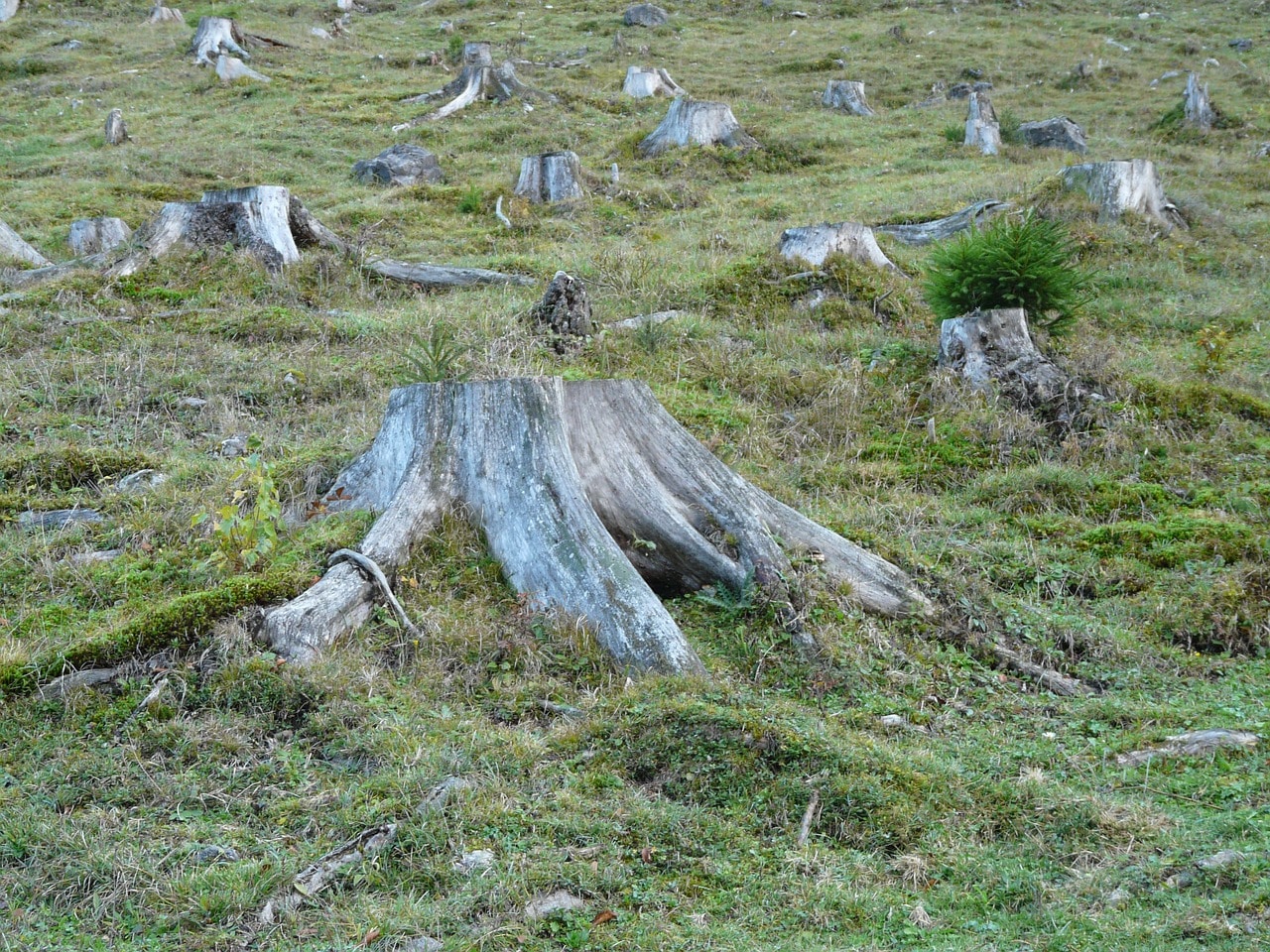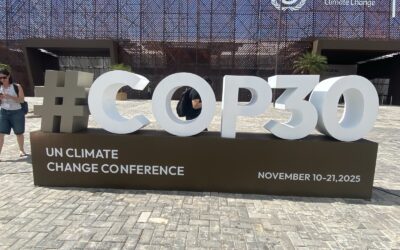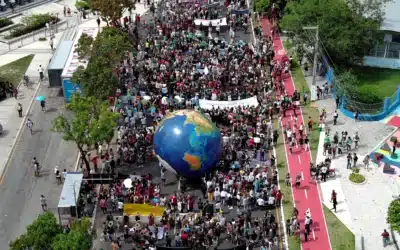6 May: More than 50 forest activists from organizations in the Global North and South gathered in Bonn to tell the UNFCCC to discuss the climate impacts of the big four drivers of deforestation – beef, soy, wood, and palm oil- which are together responsible for the majority of deforestation worldwide with devastating impacts on climate. The activists gathered in Bonn in the backdrop of the United Nations Bonn Climate Change Conference [1] ongoing from 30 April to 10 May. They participated in a workshop to address these big four deforesters organized by the Global Forest Coalition [2] on 5, 6 May.
The Bonn Climate conference will cover a range of issues like the Paris Agreement Work Programme (PAWP) and a set of decisions required to operationalize the Paris Agreement on climate change.
The activists highlighted that to tackle deforestation in the climate regime these four key commodities have to be addressed from both a demand and supply approach. Increasing demand for these forest-destroying commodities is leading to huge swathes of forest being replaced by vast monoculture plantations and pasture, especially in the global South.
Beef is the worst deforesting culprit [3] and South America, home to the world’s most precious tropical forests, is a region dramatically impacted by demand for livestock products. Between 1990 and 2005 clearing forests to make way for pasture was responsible for 71% of deforestation in seven Latin American countries [4]
“Any climate action must challenge free trade agreements that promote deforestation from beef. Look at the ongoing EU Mercosur agreement for instance- it will lead to even worse impacts in South America because the EU is gearing up to buy large quantities of prime Latin American beef – this will destroy our forests for cattle rearing [5].” said Miguel Lovera of the Global Forest Coalition
“Soy production mostly for animal feedstock is is turning precious ecosystems like the Brazillian Cerrado into a massive soy farm! So many endemic species are going extinct,” said Diana Aguilar from FASE.
Palm oil is second only to beef in its climate impacts and is leading to serious deforestation in Southeast Asia. “300 football fields of forest are lost in Indonesia for palm oil every hour! [6],” said Mohammaed Ikhwan of Serikat Petani Indonesia.
The use of Palm oils in biofuels is rising fast in the EU. “There is this idea that EU is very sustainable and palm oil is being phased out but 54% of pam oil imports were destined for EU biofuels. Growth in Hydrotreated Vegetable Oil production is the main reason why the EU’s use of palm oil for biofuels increased sixfold between 2010 and 2015,” said Almuth Ernsting of Biofuelwatch.
Wood is mainly geared towards the paper, pulp, in more recently towards bioenergy . Most of the industrial scale bioenergy production is concentrated in the EU which imports massive amounts of wood to burn it to produce electricity as part of its sustainable energy targets [7]. “the myth that bioenergy is sustainable as compared to other sources is being spread by institutions like the UN and the EU. This is a big lie. Burning wood causes more emissions than burning coal!” said Oliver Munnion of Biofuelwatch.
The activists represented organizations like Brighter Green, US, Corporate accountability international , CCFD-Terre Solidaire, Biofuelwatch, FASE Brazil, All India Forum of Forest Movements, and many others.
Notes
[1] http://sdg.iisd.org/events/48th-sessions-of-the-unfccc-subsidiary-bodies/
[2] Global Forest Coalition is a worldwide coalition of almost 92 NGOs and Indigenous peoples’ organizations from 60 different countries striving for rights-based, socially just forest conservation policies. Link: https://globalforestcoalition.org/media
[3] https://globalforestcoalition.org/whats-steak-real-cost-meat/
[4] De Sy et al (2015). Land use and related carbon losses following deforestation in South America, De Sy V, Herold M, Achard F, Beuchle R, Clevers JGPW, Lindquist E & Verchot LV, 2015 http://www.cifor.org/library/5892/landuse-patterns-and-related-carbon-lossesfollowing-deforestation-in-south-america/
[5] The whole of Mercosur in exchange for a plate of beef https://globalforestcoalition.org/wp-content/uploads/2018/04/EU-Mercosur-EN.pdf
[6] https://deforestationandpalmoil.weebly.com/uploads/1/8/8/5/18854416/wwf.pdf
[7] Biomyths document https://globalforestcoalition.org/wp-content/uploads/2015/12/bioenergy-report1.pdf
Contact in Bonn
Coraina de la Plaza
coraina.delaplaza@globalforestcoalition.org
+31 6 26290703
Simone Lovera (Executive Director, GFC)
Global Forest Coalition
+595-981-407375 (Paraguay)
+31-6-47392511 (Europe)
simone@globalforestcoalition.org
Almuth Ernsting, Biofuelwatch
biofuelwatch@ymail.com, Tel: ++44-131-6232600
Mia McDonald, Brighter Green USA
+1 917 626 8702, macdonald@brightergreen.org




